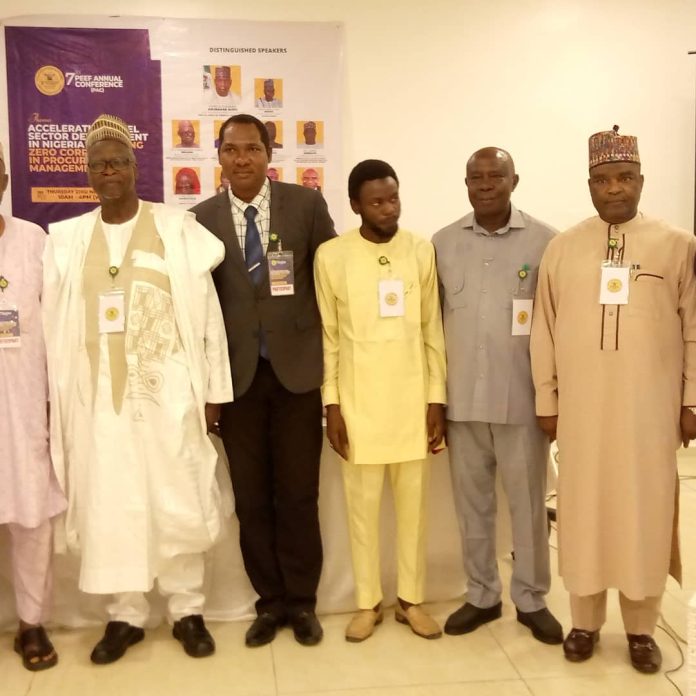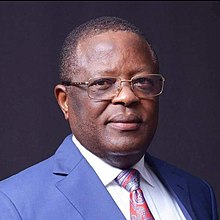…….Stakeholders proffer solutions to Nigeria steel industry challenges
Stakeholders have decried the deplorable state of the Ajaokuta Steel and the Nigerian Steel industry after 40 years of attempts by successive governments towards their revival.
The Stakeholders in a Communique at the end of the 7th PEEF Annual Conference (PAC) held in Abuja recently noted that the steel industry in Nigeria is a crucial component of the country’s economy, providing essential employment and infrastructure development, they however, pointed out that the industry faces several challenges that have impeded its growth and development.
According to them, some of the
Key challenges include: Lack of clear policy direction and commitment to national goals and aspirations by the Nigerian government; inadequate training and development opportunities for staff, poor integration of new technologies into current systems, and skewed concessions leading to losses and arbitration penalty payouts due to privatization policy.
Others include poor and unstructured funding, as well as a complicated bureaucracy in government business,
non-functioning of the plant even though completed and workable, haphazard due diligence and checks on would-be investors due to political pressures and interests, and lack of political will – apart from the Shagari Administration, not a single administration has shown the needed political will to develop the ASCL.
Also, the influence of international financial institutions, and Nigeria’s policy management systems stall development.
They revealed that the Nigeria’s Steel industry is replete with several opportunities for growth and development, which can be capitalized upon to boost the country’s economy and create employment opportunities.
Read Also: Stakeholders urge FG to declare state of emergency on steel sector
According to them, some of the key opportunities include Nigeria’s abundant natural resources, government support, significant investment in the steel sector, infrastructure gap, market potential, and integration with other industries.
In consideration of the foregoing, the conference participants in the Communique outlined key recommendations for the resuscitation of the Ajaokuta Steel Company (ASCL) and the development of the steel industry in Nigeria group
They stated”,The Nigerian government should develop a long-term and focused national plan for the resuscitation of ASCL, prioritizing the development of the steel industry and allocating necessary resources to achieve this goal.
“The government should provide patriotic and disciplined leadership, ensuring transparency, accountability, and good governance to ensure the success of the resuscitation of ASCL.
“Declaration of a state of emergency on steel to underscore the industry’s importance to the nation’s economic development, mobilizing necessary resources and focusing attention on ASCL’s resuscitation.
“Collaboration with other governments and the private sector to develop ASCL, bringing in expertise, technology, and funding to ensure project success.
“Remodeling of privatization and concession models to ensure transparency and attract the right investors for the successful resuscitation of ASCL.
“Changing the narrative of obsolescence surrounding ASCL, emphasizing that with the right investment and management, the plant can be made operational.
“Utilizing the Nigerian LNG model in resuscitating ASCL, involving a public-private partnership (PPP) model based on transparency, accountability, and good governance.
“Exploration of a bilateral government-to-government arrangement under a PPP model to fund the upgrade and rehabilitation program for ASCL, involving the original builders of the plant to ensure necessary expertise is available.”
On combating procurement and fraud risks in Nigeria’s steel sector, the
conference participants identified several risks associated with corrupt practices in steel production, including bidding, post-award project execution, maintenance, repairs, and inventory management.
The Communique noted that efficient procurement processes are critical to the success of steel production, as they impact the cost.
Read Also:Nigerian govt inaugurates Committee to review Public Procurement Act 2007
It made recommendations in this regard, which include that the framework for a procurement process is important in determining the level of corruption risk, and a transparent, accountable, and well-managed structure is necessary to mitigate these risks.
“Proper maintenance and repairs are essential to ensure the smooth operation of steel production facilities and prevent costly downtime.
“Effective inventory management is necessary to ensure that the necessary materials and supplies are available when needed, reducing the risk of delays and cost overruns.
“Efficient procurement processes are critical to the success of steel production, as they impact the cost. Effective risk management demands eliminating situations that put the organization at unnecessary, increased risk.”
It also recommended that to enhance the procurement process and ensure transparency, the following measures should be taken: “Situate the steel production value chain within the procurement value chain before making procurement decisions to identify areas for improvement and potential risks.
“Introduce monthly compliance monitoring of procurement transactions by the Independent Corrupt Practices Commission (ICPC) to ensure that procurement transactions are conducted in compliance with relevant regulations and standards.
“Inaugurate the National Council on Public Procurement to oversight the functions of the Bureau of Public Procurement (BPP), providing a platform for coordination and oversight of public procurement functions.
“Minimize the use of Selective Tendering, Single Sourcing, or Direct procurement methods, using them only as exceptions rather than the norm.
“Use the default method of procurement, which is Competitive Tendering, as much as practicable to promote fairness and transparency in the procurement process.
“Set up a team with a mix of relevant skills sets to ensure that the procurement process is efficient and effective.
“Deploy certified procurement professionals and build capacity through professional accreditation by the Chartered Institute of Procurement and Supply Management (CIPS) UK and the Chartered Institute of Procurement and Supply Management (CIPSMN).
“Emphasize the importance of preventing corruption rather than detecting it, as preventive measures are more effective in addressing corruption risks.
“Prosecute fraud and corruption cases and make the outcomes public to serve as a deterrent and demonstrate the commitment to transparency.
“Close gaps and corruption will disappear or be minimized by taking a proactive approach to identifying and addressing potential corruption risks, helping to maintain the integrity of the procurement process.”
Among other things, the Communique said the conference participants highlighted critical issues in the procurement management and agreed upon the following key challenges; corruption and management of issues in the steel sector, unprofessional practices in procurement, lack of international collaboration, repleted value system and moral bankruptcy, inadequacy of criminal prosecution, and lack of political will among other factors affecting the country’s steel sector.
It therefore recommended,”The conference communique highlights several key points to improve procurement processes and ensure transparency, including: “Registration of all stakeholders in procurements as members of CIPSMN.
“Strengthening the CIPSMN as the sole organization responsible for regulating supply chain and procurement management in Nigeria.
“Bid opening for only independent NGOs, not professional bodies.
“Minimizing the use of Selective Tendering, Single Sourcing, and Direct Procurement methods.
“Using Competitive Tendering as the default method of procurement.
“Establishing a professional procurement team with diverse skill sets.
“Deploying certified procurement professionals and building capacity through professional accreditation by CIPS UK and CIPSMN.
“Focusing on value reorientation for those involved in procurement processes.
Maintaining due diligence in procurement.
“Emphasizing e-procurement to reduce short-circuiting of the process.
“Ensuring transparent prosecution of infractions.
“Situating the steel production value chain on the procure value chain before making procurement decisions.
“Introducing monthly compliance monitoring of procurement transactions by ICPC.
“Inaugurating the National Council on Public Procurement to oversight the functions of the BPP.”
The Communique also noted that extractive and solid minerals sector challenges is equally impacting the country’s steel sector development, which include; absence of basic infrastructure, innovative leadership, accountability, patriotic zeal, and adequate technical capabilities, insecurity.
Others are inconsistent policies and conflicting responsibilities between the federal and state governments, and lack of regulation.
It therefore recommended that
the Extractive and Solid Minerals Sector in Nigeria needs sustained attention and proper regulation to accelerate economic growth and development. Non-state actors such as People Expertise and Excellence Foundation (PEEF) can play a crucial role in documenting policy goals, monitoring performance, and advocating for the sector’s development.
“Non-state actors should continue their advocacy activities to sustain the current attention the Extractive and Solid Minerals Sector enjoys.
“The sector’s proper harnessing with value-added and regulated approaches, can accelerate economic growth and development in Nigeria.
“Non-state actors should constitute a specialized team to document policy goals, monitor performance, and advocate for the sector’s development and track achievement of set milestones based on the signed performance bond between the HM of Steel Development and President Bola Ahmed Tinubu.
“Proper regulation of the sector at all levels is crucial to its development and growth,” the Communique stated.




